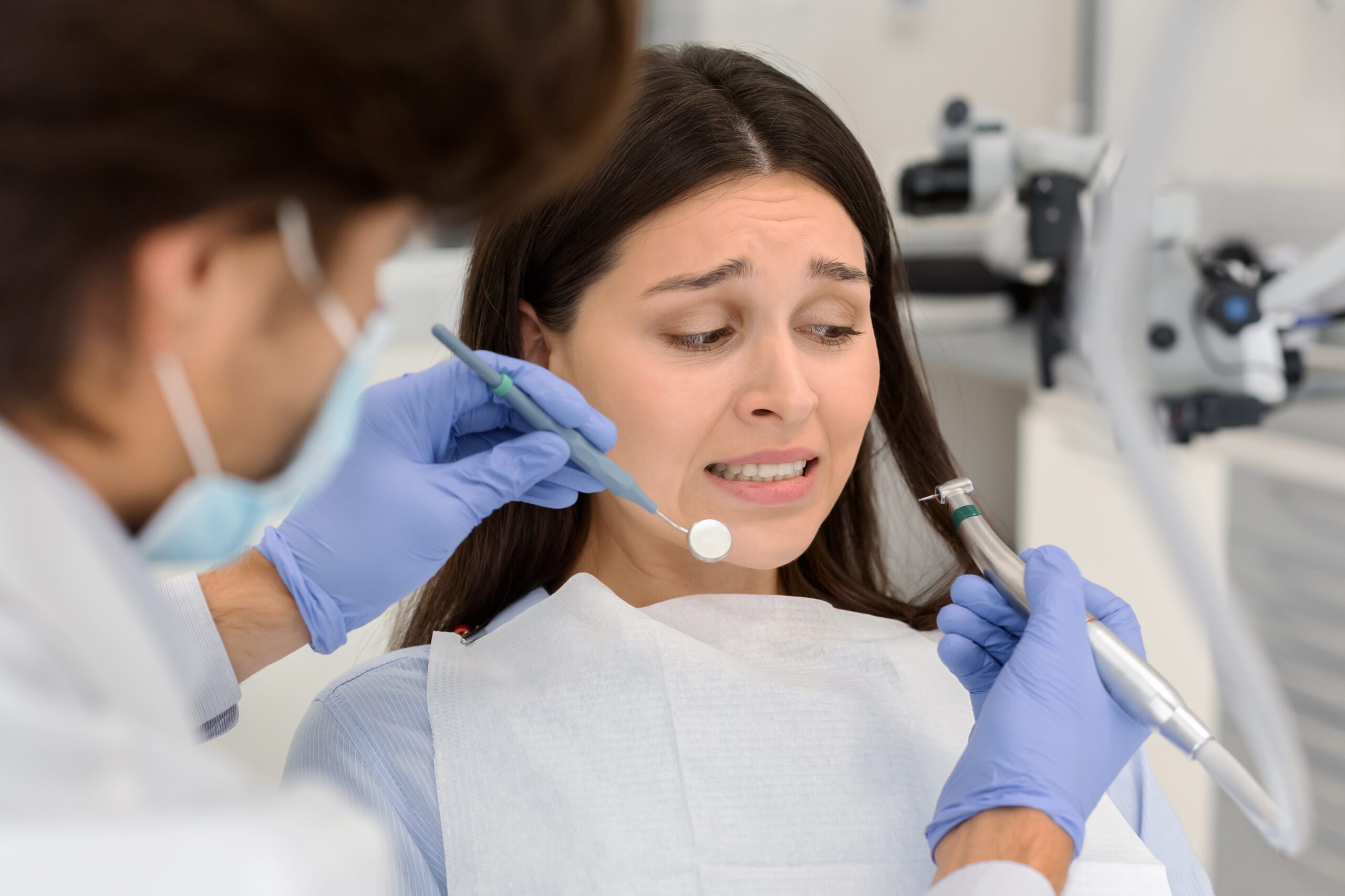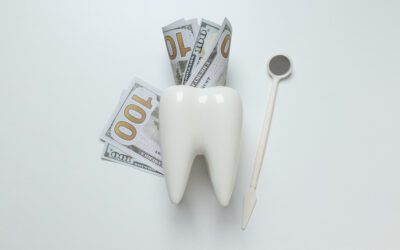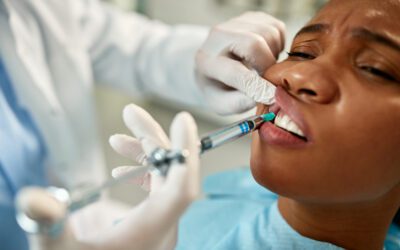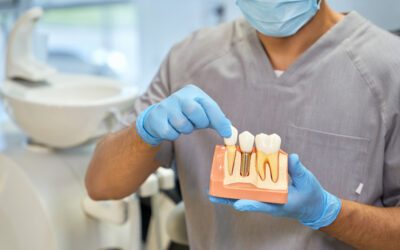Are you part of the 36% of the population who experience intense fear or anxiety when thinking about visiting the dentist? If so, you might be experiencing dentophobia. What is Dentophobia, you may ask? It's a type of specific phobia disorder that causes a fearful response to dental situations. Dentophobia is more than just a mild apprehension about dental treatments; it is an extreme fear often out of proportion to the situation.
Dentophobia can arise from various factors, including negative past experiences at the dentist, fear of pain, or a general lack of empathy during dental appointments. Common among people of all ages, dentophobia can sometimes be related to other fears, such as iatrophobia (fear of doctors) or trypanophobia (fear of needles). It is important to recognize and address dentophobia, as untreated dental anxiety may lead to serious health issues if it prevents you from seeking the dental care you need.
What is Dentophobia?
Dentophobia, also known as odontophobia, is an extreme and involuntary fear of dentists or dental procedures. This may include fear of dental instruments, procedures, or even the dental clinic environment. People with dental phobias experience dread that surpasses mild apprehension or anxiety. What is dentophobia's impact if it causes an individual to put off seeing a dentist? Avoiding dental appointments due to fear can negatively impact your oral health, creating problems like tooth decay, gum disease, and even tooth loss. Recognizing and addressing dentophobia is important to maintain good oral health and overall well-being.
Origins of the Fear
The origins of dentophobia can vary from person to person. Past traumatic experiences at the dentist, fear of pain, or stories from others can all contribute to the development of dental fear. Additionally, dentophobia can stem from other phobias.
What is Dentophobia's Prevalence?
Dentophobia is quite common and can affect people of all ages. The severity ranges from mild to severe, and in extreme cases, the fear may lead to neglect of dental health, resulting in serious health issues.

What is Dentophobia's List of Common Symptoms?
There are various symptoms and signs to watch if you believe you (or someone near you) are experiencing dentophobia. These can be categorized into physical, emotional, and behavioral symptoms.
Physical Symptoms
When faced with a dental appointment or even the thought of one, your body may react in several ways:
-
- Chills
- Dizziness and lightheadedness
- Excessive sweating (hyperhidrosis)
- Heart palpitations
- Nausea
- Shortness of breath (dyspnea)
- Trembling or shaking
- Upset stomach or indigestion (dyspepsia)
Emotional Symptoms
Apart from the physical symptoms, there are emotional symptoms related to dentophobia. These can include:
-
- Intense fear or panic
- Anxiety that is difficult to control or manage
- Fear that is out of proportion to the potential danger
Behavioral Symptoms
Due to the anxiety and fear associated with dentophobia, several behavioral symptoms may manifest. Here are some common examples:
-
- Avoidance of the dentist
- Refusing specific treatments due to fear of pain, gagging, use of needles, etc.
- Panicking or crying at the dentist's office
- Shaking or trembling at the dentist's office
- Nausea with or without vomiting before a dentist visit
- Rapid heart rate
- Heart palpitations
- Sweating
- Dizziness
Causes and Factors
Dentophobia can stem from a variety of causes and factors. In this section, we will explore the primary reasons contributing to this phobia.
What is Dentophobia's Relationship to Past Dental Experiences?
Negative past experiences, such as a painful or uncomfortable procedure, an unempathetic practitioner, or feelings of vulnerability during a visit, may have triggered your fear of dentists. These memories can remain ingrained in your mind, causing anxiety when facing future dental appointments.
What is Dentophobia's Tie to Genetic and Environmental Influences?
Genetics can play a role in developing dentophobia, as having a family member with a phobic or anxiety disorder may increase your risk. Additionally, a gene mutation may contribute to heightened anxiety levels. Environmental factors, such as observing a parent's or sibling's fear of dentists, can also contribute to the development of this phobia.
What are Some Common Misconceptions and Myths That May Fuel Dentophobia?
False information about dental procedures and treatments can fuel your fear of dentists. Common myths about the pain or discomfort associated with dental work often exaggerate the negative aspects, contributing to unnecessary anxiety. It's essential to seek accurate information about dental procedures and treatments to alleviate these misconceptions.
Understanding the causes and factors behind dentophobia can help you gain insight into your fear and take the necessary steps toward overcoming it. By addressing past experiences, considering genetic and environmental influences, and dispelling misconceptions and myths, you can work towards conquering your fear of dentists.

Coping Strategies
Don't let the fear of dentists debilitate you from taking care of your oral health. Instead, explore coping strategies to help move you toward your dental office.
Relaxation Techniques
When dealing with dentophobia, incorporating relaxation techniques can help calm your nerves before and during dental visits. Simple practices such as deep breathing, meditation, or hypnosis can aid in reducing anxiety and improving your overall experience at the dentist.
Listening to soothing music, podcasts, or audiobooks can also provide relief during dental procedures. Consider bringing earbuds and your favorite audio content to distract yourself from any discomfort or anxiety. Additionally, using a sleep mask to cover your eyes or a neck pillow with a calming scent like lavender may alleviate tension and make the experience more pleasant.
Positive Affirmations
Positive self-talk and affirmations can be helpful when facing your fear of dentists. By continually reminding yourself of the importance of dental health and the benefits of timely dental care, you may begin to feel more comfortable with the idea of visiting the dentist. Focus on positive experiences you've had in the past, or visualize a successful dental appointment to keep your thoughts on track.
Preparation and Knowledge
Being well-informed about dental procedures and what to expect during your appointment can alleviate some of the uncertainty contributing to your dentophobia. Take the time to learn about the process, ask your dentist any questions, and make sure you understand why particular treatments are necessary. This preparation can help build trust with your dental provider and make you feel more in control of the situation.
Moreover, you can consider trying exposure therapy, a type of psychotherapy, to gradually build a more comfortable relationship with dental visits. By starting with shorter appointments and progressing to more involved treatments over time, you can ease yourself into accepting dentistry as part of your regular healthcare routine.
Treatment Options
There are treatment options to overcome your dentophobia. In this section, we will explore some treatment options.
Cognitive-Behavioral Therapy (CBT)
One effective treatment for dentophobia is Cognitive-Behavioral Therapy (CBT). CBT is a type of psychological treatment used to identify and change patterns of negative thought and behaviors related to your fear of the dentist. During CBT sessions, you will work with a therapist to develop strategies for managing your anxiety, such as exposure therapy, where you will gradually face your fears in a controlled setting.
Medications and Sedation
Another approach to managing dentophobia is the use of medications and sedation. Your dentist may offer different types of sedation to help you relax during visits, such as nitrous oxide or “laughing gas.” They may also prescribe anti-anxiety medications like Xanax or Valium to take before your appointments.
In some cases, local anesthetics can be used to numb the area being treated. In contrast, general anesthesia may be recommended for more invasive procedures, ensuring that you remain completely unconscious during the treatment. Always discuss these options with your dentist to determine your best choice.
Alternative Therapies
For a more holistic approach, you might consider exploring alternative therapies to manage your dentophobia. Some popular choices include:
-
- Aromatherapy: Uses essential oils, like lavender or chamomile, for relaxation.
- Acupuncture: This traditional Chinese medicine technique uses thin needles to stimulate specific points on your body, potentially helping to reduce anxiety.
- Meditation and mindfulness: Techniques like deep breathing exercises help you stay relaxed and focused during dental visits.
Remember to discuss any treatment options with your healthcare professional before getting started. Additionally, always keep your dentist informed about your fears and any interventions you are using to manage your dentophobia.
Finding Support
Dentophobia can make dental appointments seem daunting. But, finding support can help you overcome your anxiety and get the dental care you need. This section will explore dentist selection tips, online communities, and support groups to help you manage your dentophobia.
Dentist Selection Tips
One key aspect of managing dentophobia is finding a dentist who understands your fears and is sensitive to your anxiety. Here are a few suggestions:
-
- Ask for recommendations: Reach out to family and friends for recommendations of dentists who are known for their gentleness and empathy.
- Read reviews: Check online reviews to gain insight into other patients' experiences with different dentists. Look for dentists who are frequently praised for ease of communication and for creating a comfortable atmosphere.
- Meet the dentist: Schedule a consultation to meet the dentist before you commit to treatment. This will let you see if you feel at ease with the dentist and their approach.
- Speak up: Share your concerns and fears with your dentist. A compassionate dentist will work with you to develop a plan that addresses your anxiety and makes your experience more manageable.
Online Communities and Support Groups
In addition to selecting the right dentist, connecting with others who have experienced similar fears can be extremely beneficial. There are several online communities and support groups available:
-
- Facebook groups: Search for dentophobia or dental anxiety-focused groups on Facebook. These communities offer a space for sharing experiences and receiving advice from others who have faced similar challenges.
- Online forums: Dental anxiety-focused forums, such as Dental Fear Central, can provide both information and support from individuals who have navigated dentophobia.
- Local Meetups: Search for local support or meetup groups focusing on managing anxiety or phobias, including dentophobia.
- Professional counseling: Some mental health professionals may have experience in helping people manage dentophobia. What is dentophobia preventing you from doing? If your dental fears significantly impact your life, consider contacting a therapist or counselor specializing in anxiety disorders.
Remember that dentophobia is a common fear, and you are not alone. Finding a supportive dentist and connecting with others who share your concerns can help you feel more at ease and in control of your dental health.
What is Dentophobia – Final Thoughts
In conclusion, dentophobia, also known as odontophobia, is a common but potentially harmful fear that affects people of all ages. As you've learned, it is an extreme fear of dental treatments, procedures, or even the idea of visiting a dentist.
Understanding the causes and symptoms of dentophobia can help you identify whether you or someone you know may be struggling with this condition. The fear may arise from a negative past experience or discomfort or even be tied to other phobias such as iatrophobia or trypanophobia.
Not letting dentophobia deter you from seeking necessary dental care is crucial. What is dentophobia keeping you from addressing? If left untreated, dental issues can have serious health consequences. Be open about your fears with your dentist, and look for an understanding and empathetic dental professional to alleviate your anxieties. They may offer solutions to help manage or overcome your fears, ensuring that you receive adequate dental care.
In summary, acknowledging and addressing your dentophobia is imperative to maintaining good oral health and overall well-being. Don't be discouraged by your fear; instead, work with your dentist to face and overcome it. Remember, oral health significantly impacts your overall health, so don't let dentophobia stand in your way.




